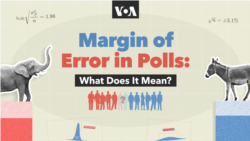
A judge has overturned changes to Georgia election rules made in August by a Republican-controlled state board, in a case brought by a conservative group that argued the changes would disrupt voting rights ahead of the November 5 U.S. presidential election.
Judge Thomas Cox handed down the decision Wednesday. The case closely mirrored a separate lawsuit brought by the Democratic Party challenging the State Election Board's actions, which Democrats portrayed as a ploy to impede certification of voting results in a state that could be crucial to the election outcome.
Georgia is one of seven closely contested states that are expected to determine the winner of the presidential race between Democrat Kamala Harris and Republican Donald Trump. U.S. presidential elections are decided through state-by-state results, not by a majority in the national popular vote.
The board empowered county election board members to investigate discrepancies between the number of ballots cast and voters in each precinct and examine a trove of election-related documents before certifying their results. The board's 3-2 vote was powered by three allies of Trump, who lost to Democrat Joe Biden in Georgia in the 2020 election and made false claims of widespread voting fraud. Some senior Republicans continue to refuse to say that Biden was fairly elected in 2020.
The board's moves drew bipartisan criticism. The conservative group that brought the case on September 11, Eternal Vigilance Action, argued the Georgia board had exceeded its legal authority in making the changes.
Republican Brad Raffensperger, who as secretary of state is Georgia's top election official, has said that the election board's "11th-hour" changes would damage voter confidence and burden election workers.
States must certify their voting results - confirming the accurate tabulation of the votes cast - as part of the process of determining a presidential election's outcome.
In its separate case, the Democratic National Committee said in a court filing that Georgia's election board had sought to turn the act of certification into "a broad license" for officials at the county level "to delay certification or block it altogether in a hunt for purported election irregularities."
The Democrats noted that certification of election results is mandatory under state law, and that other avenues exist to contest disputed results.
The board's majority has said the various new rules are intended to make the election more secure and transparent. Trump, seeking a return to the presidency, has praised his three allies on the board as "pit bulls."
Trump supporters stormed the U.S. Capitol in January 2021 in a failed bid to prevent Congress from certifying the voting results from November 2020 election. Democrats now are accusing Republicans in various states of seeking to delay or prevent certification of voting results unfavorable to Trump.
Another contentious rule passed by Georgia's board, which would have required poll workers to hand count ballots, was blocked by a judge on Tuesday. Democrats similarly had portrayed that move as a bid by Trump allies to thwart certification of voting results.

























